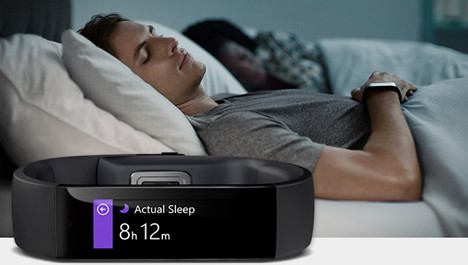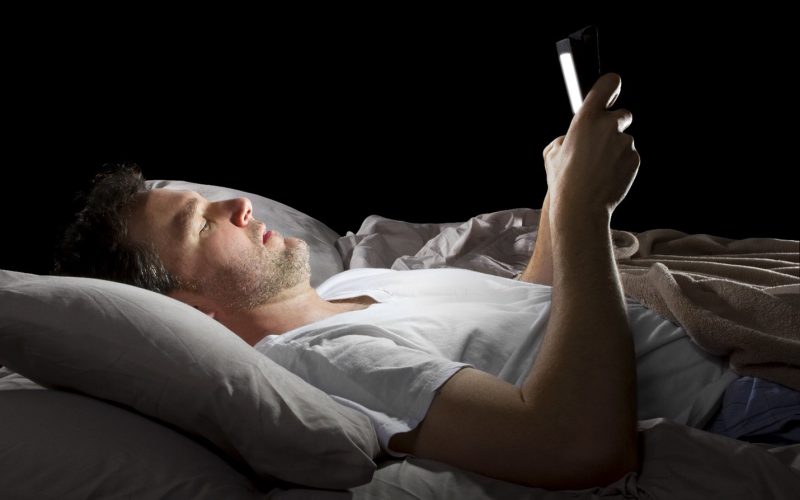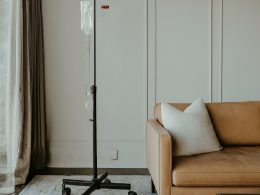In the modern era, technology has become an integral part of daily life, influencing how we work, communicate, and even how we sleep. As gadgets and digital screens proliferate, concerns about their impact on sleep quality have emerged. Recent studies have shed light on how technology affects our sleep patterns, offering insights that are crucial for both individuals and healthcare professionals.
The Relationship Between Technology and Sleep
The relationship between technology and sleep quality is complex and multifaceted. On one hand, technology offers numerous benefits, such as access to sleep-tracking apps and devices that can help monitor and improve sleep habits. On the other hand, excessive use of electronic devices, particularly before bedtime, has been linked to various sleep disturbances.
Blue Light Exposure
One of the most significant factors affecting sleep quality is exposure to blue light emitted by screens on smartphones, tablets, and computers. Blue light has been shown to interfere with the production of melatonin, a hormone that regulates sleep-wake cycles. Reduced melatonin levels can delay sleep onset and reduce overall sleep quality.
Cognitive Stimulation
The content consumed through technology can also play a role in sleep disruption. Engaging in stimulating activities such as playing video games, watching action-packed movies, or reading emotionally charged news can make it difficult for the brain to wind down, leading to delayed sleep onset and fragmented sleep.
Social Media and Anxiety
Social media platforms can be particularly problematic. Scrolling through social media feeds before bed can trigger anxiety and stress, making it harder to fall asleep. The constant barrage of notifications and the fear of missing out (FOMO) can keep the mind active when it should be winding down.
New Findings on Technology and Sleep Quality
Recent research has provided new insights into how technology impacts sleep quality. A study published in the journal Sleep Medicine found that individuals who used electronic devices for more than two hours before bedtime experienced significantly poorer sleep quality compared to those who limited their use. The study highlighted that not just the duration but also the type of content consumed played a crucial role in sleep disruption.
Sleep-Tracking Devices
Interestingly, not all technology negatively impacts sleep. Sleep-tracking devices and apps have gained popularity for their ability to monitor sleep patterns and provide feedback. These tools can help identify sleep disorders such as sleep apnea and insomnia, allowing for timely intervention. However, it’s essential to use these devices wisely, as becoming overly fixated on sleep data can itself become a source of anxiety, further disrupting sleep.

The Role of Artificial Intelligence
Artificial Intelligence (AI) is also making strides in the realm of sleep technology. AI-powered apps can offer personalized sleep recommendations based on individual sleep data. These apps analyze patterns and suggest changes in lifestyle and habits to improve sleep quality. For instance, they might recommend reducing screen time before bed or altering the sleep environment to make it more conducive to rest.
The Impact on Different Age Groups
The impact of technology on sleep quality varies across different age groups. Adolescents are particularly vulnerable due to their high engagement with social media and video games. A study conducted by the American Academy of Pediatrics found that teenagers who spent more than three hours on electronic devices daily were more likely to suffer from sleep problems such as insomnia and delayed sleep phase syndrome.
Adults are not immune either. The demands of modern work culture, often requiring constant connectivity, can lead to increased screen time and reduced sleep quality. Older adults, while generally less engaged with technology, can still experience sleep disturbances due to excessive TV watching or late-night internet use.
Mitigating the Negative Effects of Technology on Sleep
Given the pervasive nature of technology, completely eliminating screen time before bed may not be practical for everyone. However, there are several strategies to mitigate its negative impact on sleep quality.
Limiting Screen Time
One of the most effective ways to improve sleep quality is to limit screen time, especially in the hour leading up to bedtime. Setting a digital curfew can help signal to the body that it’s time to wind down and prepare for sleep.
Using Blue Light Filters
Many devices now come with built-in blue light filters or “night mode” settings that reduce blue light emission. These features can be activated in the evening to minimize the impact on melatonin production.
Creating a Relaxing Bedtime Routine
Establishing a calming pre-sleep routine can also be beneficial. Activities such as reading a book, taking a warm bath, or practicing mindfulness meditation can help the mind and body transition into a state conducive to sleep.
Mindful Consumption of Content
Being mindful of the type of content consumed before bed is equally important. Opting for less stimulating activities and avoiding emotionally charged or stressful content can help improve sleep quality.
Leveraging Sleep-Tracking Technology Wisely
For those using sleep-tracking devices, it’s crucial to use the data as a tool for improvement rather than a source of stress. Setting realistic sleep goals and focusing on overall trends rather than nightly fluctuations can help maintain a healthy relationship with sleep technology.
Conclusion
The impact of technology on sleep quality is a growing area of concern and research. While excessive use of electronic devices, especially before bed, can significantly impair sleep, there are ways to mitigate these effects. By understanding the relationship between technology and sleep and adopting healthier habits, individuals can enjoy the benefits of technology without compromising their sleep quality.
As new findings continue to emerge, it is essential to stay informed and make conscious choices about technology use. Balancing the advantages of modern devices with the need for restful sleep is key to maintaining overall well-being in our increasingly digital world.










